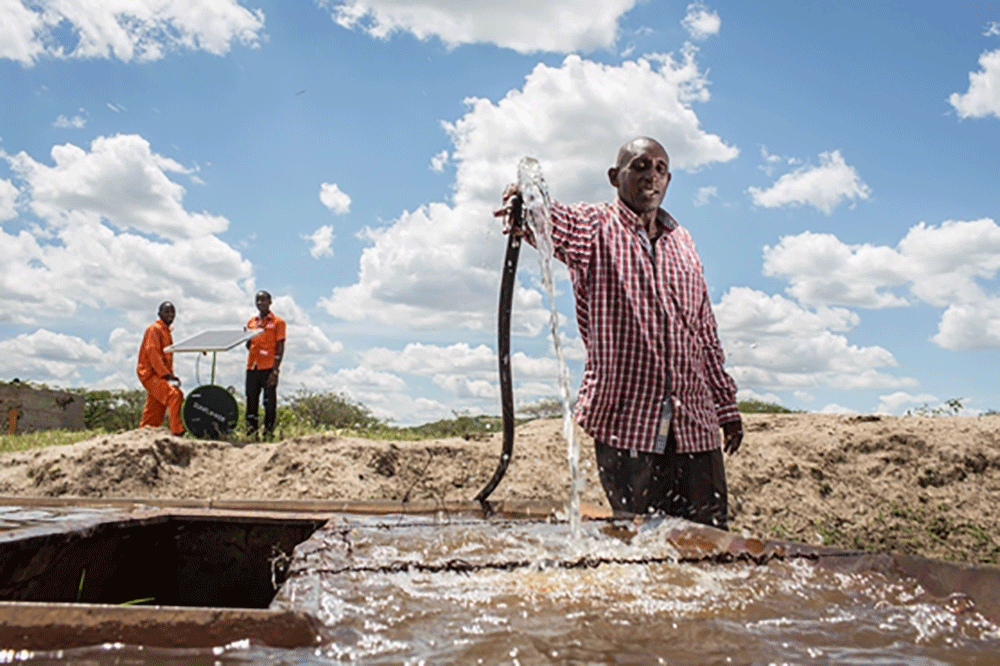Social business firm SolarNow has turned to the Internet of Things (IoT) in a bid to provide more and better services to its customers.
While the time, costs and risks involved in setting up IoT deployments can appear to be a daunting, SolarNow turned to IoT M2M connectivity specialist Eseye.
The market leader offered a highly secure and reliable global cellular network data through the AnyNet Secure™ SIM, with seamless integration onto the AWS Cloud.
Jeremy Potgieter, SADC regional head for Eseye, said that SolarNow’s requirement was to enhance access to and use to device data.
“They wanted better oversight of remote equipment and to be able to communicate with clients, for example when payments are due or if there is an issue with their device,” he said.
The SIM’s enhanced features also enable SolarNow to remotely and securely activate, provision, authenticate and certify deployed devices over-the-air in up to 190 countries.
Integration with AWS Cloud Services further simplifies project set up and deployment by reducing the need for investment in specialist in-house infrastructure and development resources.
By adding AWS’ software tools and cloud, SolarNow establishes the means to simply and quickly analyse data and to scale instantly and securely on demand.
Solar as an energy source is becoming increasingly vital and viable to off-grid populations in the East African region, in part to reduce the widespread use of polluting and dangerous kerosene lamps, but also to harness the significant economic, social and health benefits reliable power sources provide.
SolarNow addresses the unmet need for sustainable quality solar energy in the region through the provision of solar powered equipment, appliances and services to remote or off-grid home, farm, school, health centre and business locations.
To make a deployment achievable, the company offers affordable and flexible credit with every solution, a key feature in widening access to solar energy in the African market.
Working with developers at SolarNow, Eseye also created software and supplied a reference design, which the company could simply copy onto the circuit board of the microprocessor, which sits on a solar controller and manages SolarNow’s solutions.
“By taking a proven design and effectively copying it into its devices, it has enabled SolarNow to move from a non-connected to a connected product offering and to take full advantage of the capabilities of IoT,” added Potgieter.
“This not only provides the company with huge growth potential, but also adds a new level to its customer service offering.”
SolarNow has also been able to improve further key elements of its offering, such as analysing enhanced system data to communicate with the clients if there is an issue with their device, when payments are due, or to issue a warning.
By building a wider picture of the customer and understanding how they use the system to develop product value and customer service, the company has gained a new way of interacting with customers through its solar solutions.
“By turning to cellular connectivity, SolarNow can further credit provision, mostly through better insights into client behaviour, making solar more accessible through affordable finance,” said Peter Huisman, CTO at SolarNow.
“Using cellular connectivity also means the performance of the solar system can be remotely monitored, ensuring a much better service for customers.
“SolarNow believes that this new level of capability is another key step in its continued mission to build the best relationships with its customers.
“At the same time, global roaming capabilities alleviate any concerns over connectivity, so the company can continue to drive the growth of solar as a central energy source across East Africa.”
Potgieter added that SolarNow has fully exploited the tools to make IoT easy – a move which is not only pivotal for
the company’s future growth, but also for the future of the customers it serves.
“The power of connected technology to solve issues and truly change lives across Africa, by enabling service provision for even the most remote or disempowered members of its communities, cannot be underestimated,” said Potgieter.


